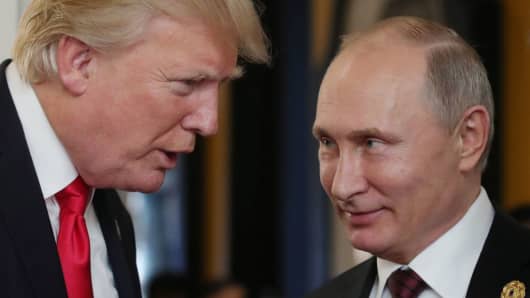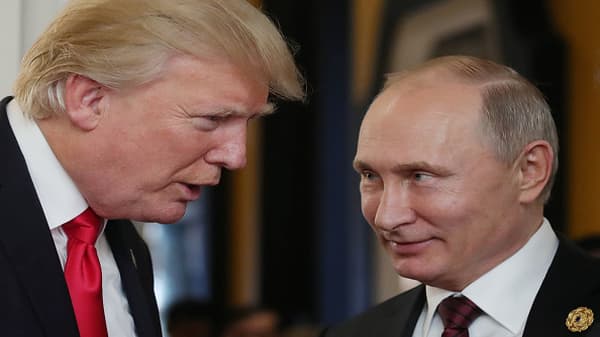Any world leaders meeting face-to-face should be seen as a good thing, but when it’s President Donald Trump and Vladimir Putin, then European officials are right to feel a little anxious.
Political commentators expect a purely symbolic spectacle when the two meet in Finland on July 16. But the backdrop to the event — just days after a NATO summit in Brussels — is leaving some wary on what the U.S. president could concede to his Russian counterpart.
Trump, openly critical of the North Atlantic alliance, could strain relationships even further with smaller eastern European nations bordering Russia that are heavily reliant on NATO for protection and reassurance.
Experts at political analysis firm Eurasia Group believe the EU would “squirm” over any Trump language that undermines the transatlantic comity on Ukraine or European security.
Timothy Ash, a senior emerging markets sovereign strategist at BlueBay Asset Management, even claims that Trump offers the prospect of being Putin’s “Trojan horse within NATO.”
“Remarkably, Trump seems to be happy to work to an agenda which Putin could only have fantasized about — the end of NATO and the North Atlantic alliance,” Ash said in a research note last week. “For Putin, this is his equivalent of Soviet Union’s 1991 moment — his total victory over NATO. Unbelievable stuff, for any observer of geopolitics and post WWII European history.”





